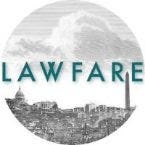Compiled by Caleb Benjamin
Articles
A Pound of Flash: Rhetoric Versus Reality When FISA Section 702 is Not Too Big to Fail
Stephanie Pell argued that it’s time for the Justice Department to aid Congress in addressing concerns about FISA Section 702 reform because if it doesn’t, the Biden administration risks losing the critical national security tool altogether.
The administration’s current strategy may be to dig in its heels and throw sand in the gears of any effort to create a court order requirement for U.S. person queries. But in the current political environment, that comes with a very high risk of losing 702 altogether. Instead, the administration should be providing the relevant congressional committees with technical advice and assistance, both in order to craft a workable legal standard(s) and to enable the reauthorization of Section 702.
The Next Stick: The Biden Admin’s New Program to Regulate Outbound Investment
Brandon L. Van Grack, Charles Capito, James Brower, and Jonathan Babcock discussed the Biden administration's new program to regulate outbound investments that could threaten U.S. national security: its origins, how it will work, and its key implications. The regulations currently aim to hinder investments deemed to support China’s military modernization—but Van Grack et al. note that the program is still far from its final form.
Even parties that are not directly affected have an interest in monitoring the development of this new tool, since once the U.S. government creates a national security tool, it rarely, if ever, puts it away. Here, the executive order underlying the program specifically contemplates the addition and removal of technologies or sectors after the program is finalized. Like other national security tools, such as export controls, sanctions, and CFIUS, the outbound investment program is here to stay and will likely grow.
Documents
Caleb Benjamin shared the Privacy and Civil Liberties Oversight Board Report on the Surveillance Program Operated Pursuant to Section 702 of the Foreign Intelligence Surveillance Act. The report discusses Section 702 implementation and analyzes its value as significant debate surrounds it in the lead-up to its December 2023 expiration date.
Hyemin Han shared U.S. District Judge Tanya Chutkan’s order denying former President Donald Trump's motion to recuse herself from the Jan. 6 case.
Anna Hickey shared the testimonies of four executive branch officials–Carolina Kass, Christopher Maier, Victoria Nuland, and Richard Visek–who testified in front of the House Foreign Affairs Committee in a Sept. 28 hearing on reforming the 2001 Authorization for Use of Military Force (AUMF).
Podcasts
The Lawfare Podcast: Ken Chesebro’s Upcoming Trial: Benjamin Wittes and Anna Bower sat down with Kenneth Chesebro’s defense attorneys, Scott Grubman, Manny Arora, and Robert Wilson. In a wide-ranging conversation, they discussed why Chesebro demanded a speedy trial, the merits of several pending motions, and the prospect of a settlement in Chesebro’s case.
Rational Security: The “So Much for that Menendez Rest Stop” Edition: Scott R. Anderson, Quinta Jurecic, and Alan Rozenshtein sat down to discuss this week’s big national security news stories, including the indictment of Senator Robert Menendez (D-N.J.), Judge Chutkan’s pending decision on a proposed gag order on Trump, the House Foreign Affairs Committee hearing on reforming the 2001 AUMF, and more.
Chatter: Governing Space Settlements Ethically: David Priess spoke with Erika Nesvold about the JustSpace Alliance that she co-founded and its interactions with space industrialists, conflicting motivations for humanity to settle space, the Outer Space Treaty of 1967, labor law and criminal justice in space settlements, and more.
Videos and Webinars
On this week’s episode of “Lawfare Live: Trump’s Trials and Tribulations,” Wittes sat down with Anderson, Bower, and Roger Parloff to discuss Judge Chutkan’s order denying Trump's motion for recusal, Judge Scott McAfee’s order regarding revealing jurors’ identities in the Fulton County case, a New York judge finding Trump liable for fraud, and more.
Announcements
Applications for the Lawfare Student Contributor Program for the 2023-2024 academic year are now open. The program allows law students in their second and third years, LLMs, and SJDs (or foreign equivalent) to submit articles and provide research support on issues at the nexus of national security, law, and policy. Applications are due by Oct. 16, 2023. Please apply here.
Support Lawfare
Follow us on Twitter, Facebook, YouTube, and LinkedIn. Become a material supporter on Patreon and Substack or make a one-time tax-deductible contribution on Givebutter. Sign up to receive Lawfare in your inbox. Check out relevant job openings on our Job Board.




